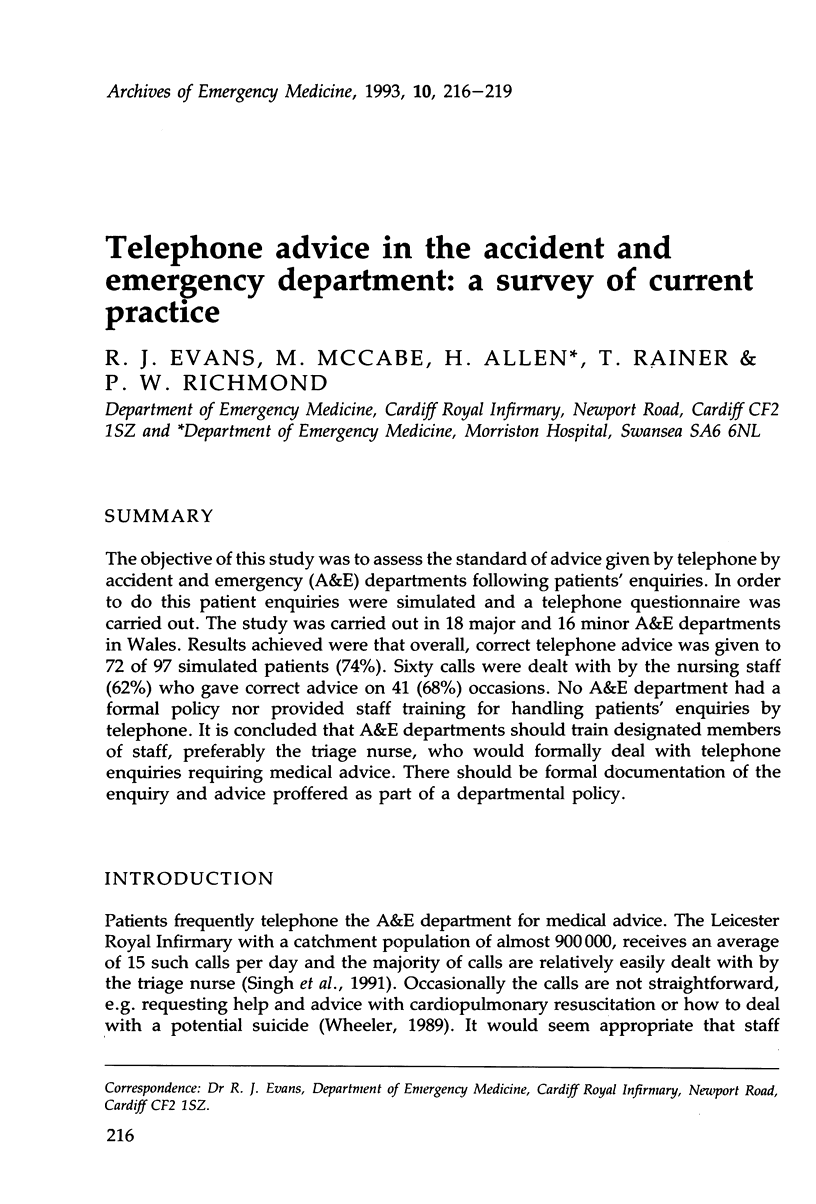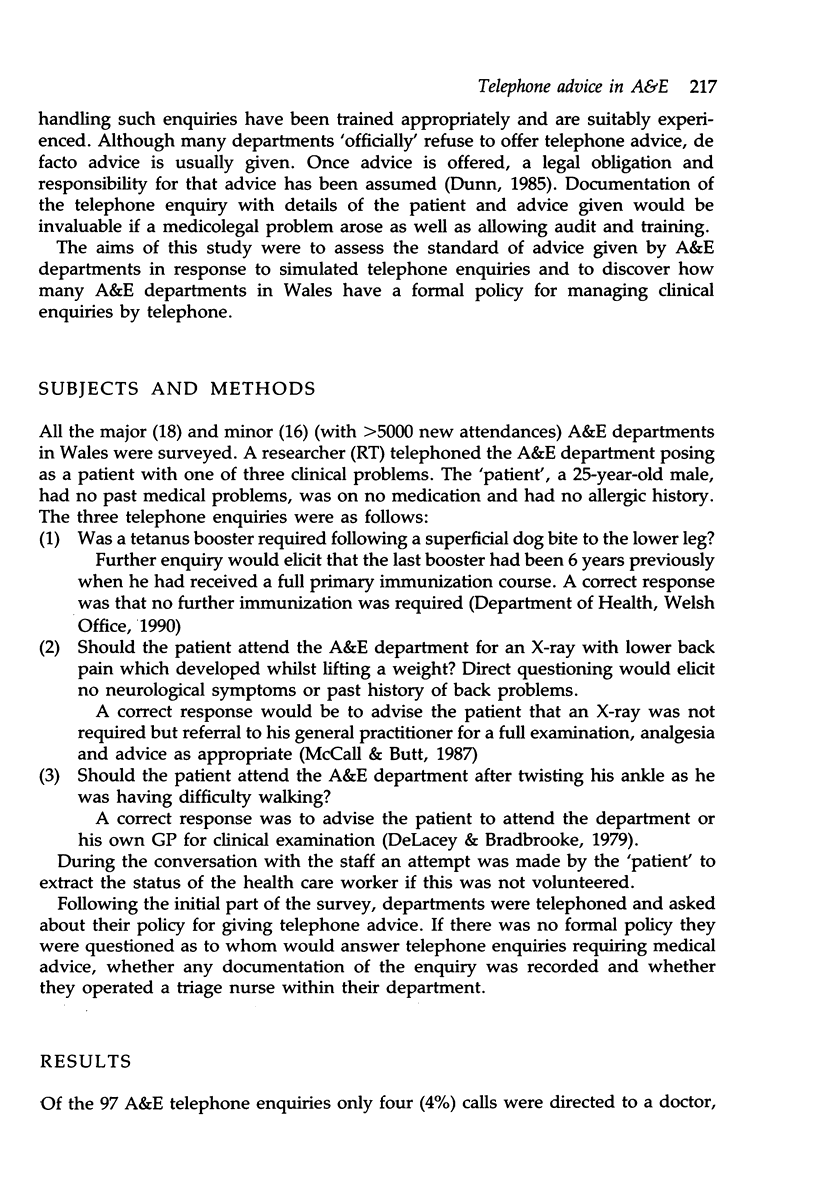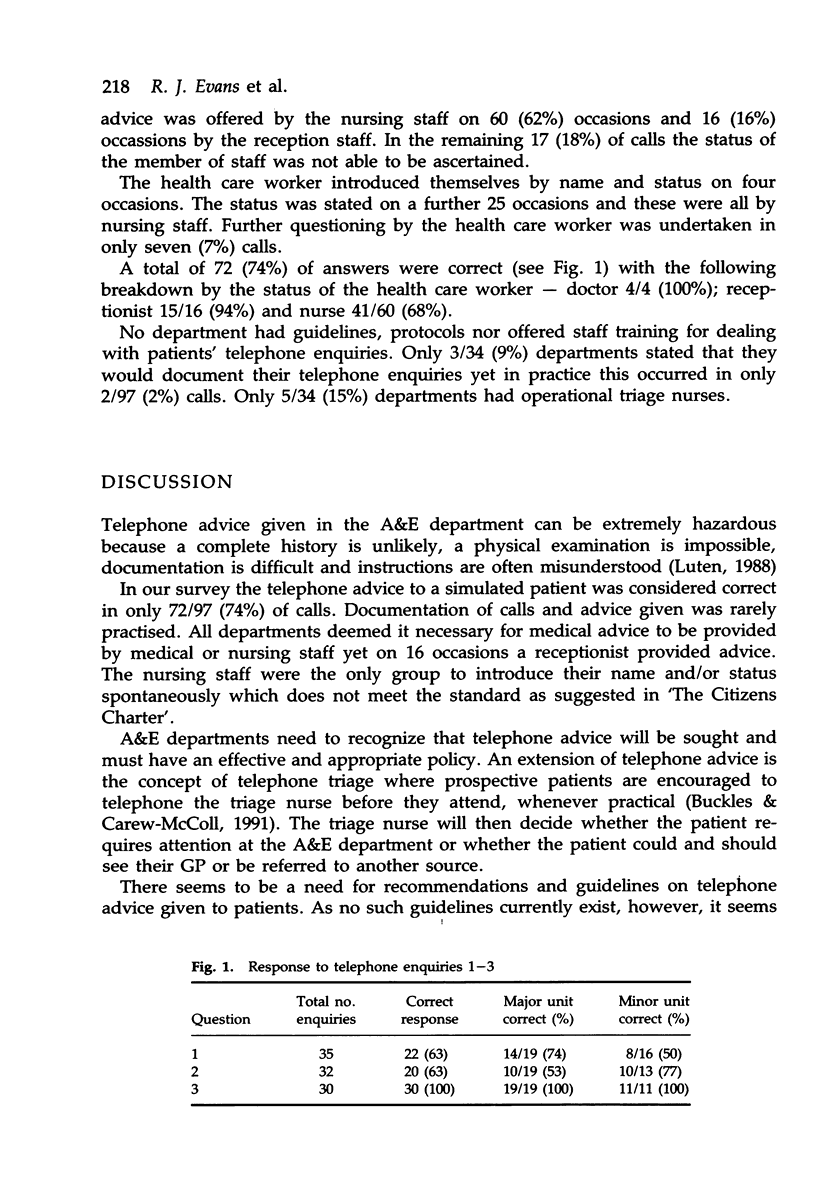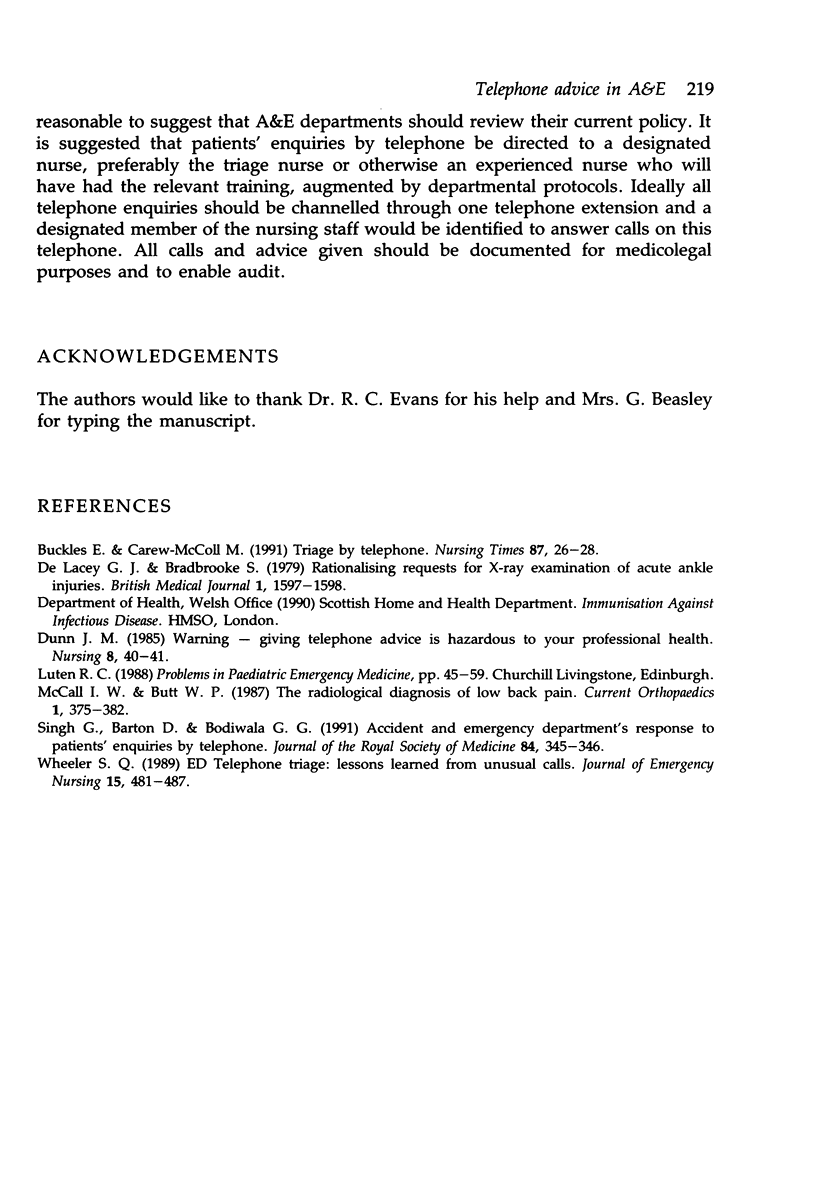Abstract
The objective of this study was to assess the standard of advice given by telephone by accident and emergency (A&E) departments following patients' enquiries. In order to do this patient enquiries were simulated and a telephone questionnaire was carried out. The study was carried out in 18 major and 16 minor A&E departments in Wales. Results achieved were that overall, correct telephone advice was given to 72 of 97 simulated patients (74%). Sixty calls were dealt with by the nursing staff (62%) who gave correct advice on 41 (68%) occasions. No A&E department had a formal policy nor provided staff training for handling patients' enquiries by telephone. It is concluded that A&E departments should train designated members of staff, preferably the triage nurse, who would formally deal with telephone enquiries requiring medical advice. There should be formal documentation of the enquiry and advice proffered as part of a departmental policy.
Full text
PDF



Selected References
These references are in PubMed. This may not be the complete list of references from this article.
- Buckles E., Carew-McColl M. Communication. Triage by telephone. Nurs Times. 1991 Feb 6;87(6):26–28. [PubMed] [Google Scholar]
- Dunn J. M. Warning: giving telephone advice is hazardous to your professional health. Nursing. 1985 Aug;15(8):40–41. doi: 10.1097/00152193-198508000-00018. [DOI] [PubMed] [Google Scholar]
- Singh G., Barton D., Bodiwala G. G. Accident & Emergency Department's response to patients' inquiries by telephone. J R Soc Med. 1991 Jun;84(6):345–346. doi: 10.1177/014107689108400613. [DOI] [PMC free article] [PubMed] [Google Scholar]
- Wheeler S. Q. ED telephone triage: lessons learned from unusual calls. J Emerg Nurs. 1989 Nov-Dec;15(6):481–487. [PubMed] [Google Scholar]
- de Lacey G., Bradbrooke S. Rationalising requests for x-ray examination of acute ankle injuries. Br Med J. 1979 Jun 16;1(6178):1597–1598. doi: 10.1136/bmj.1.6178.1597. [DOI] [PMC free article] [PubMed] [Google Scholar]


